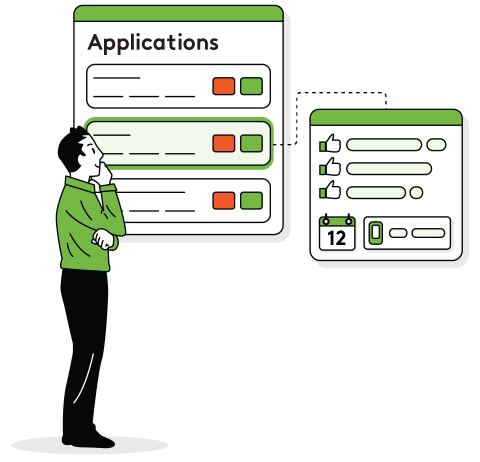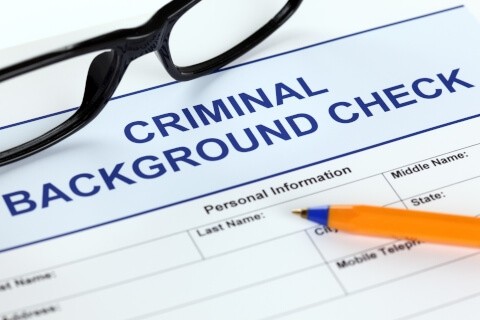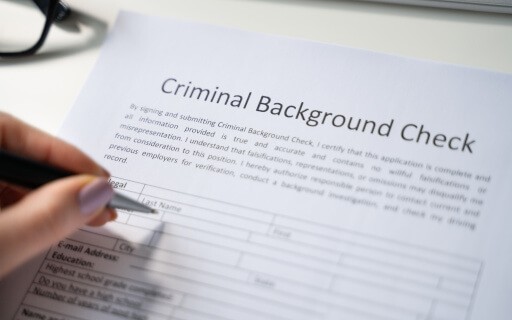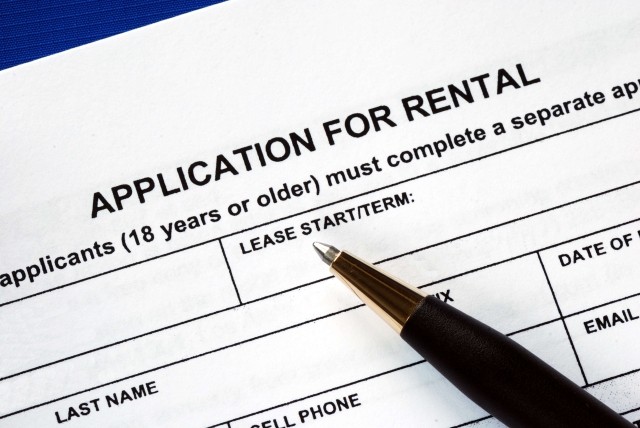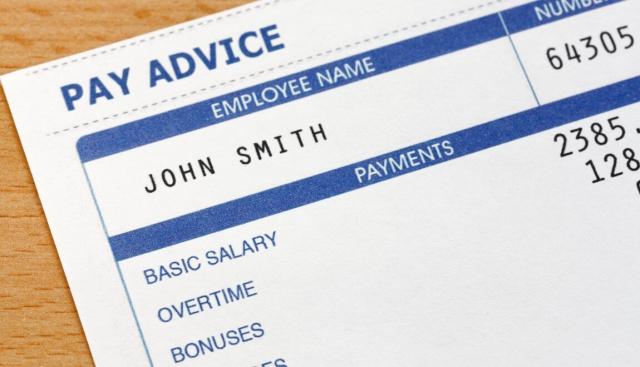
In today’s digital era, it’s become easier for tenants to cut corners on their rental applications, especially when it comes to proof of income. With the presence of digital manipulation and photo editing platforms, fake pay stubs are becoming more prevalent in rental applicant pools, and unfortunately, they’re not always easy to spot.
Today’s landlords must be on high alert when screening tenants and verifying proof of income. If you’re not careful, you could end up with a deceptive, irresponsible tenant who can’t make their monthly rent. This is why it’s important to know the signs of a fake pay stub and how to ensure your tenant is truthful, responsible, and financially fit to rent.
In this guide, we’ll explain how to detect fake pay stubs for rental applications and effectively screen tenants by answering the following questions:
- Why are pay stubs important for tenant screening?
- How can you tell if a pay stub is real?
- How do you verify a pay stub?
- What do you do if a pay stub is fake?
Why Are Pay Stubs Important for Tenant Screening?
Of all the tenant screening components, proof of income is the most crucial to your rental business. Without verifiable financial security, you can’t be sure that a tenant will make their monthly rent payments. This is why verifying a tenant’s proof of income is essential to protecting your bottom line.
Ideally, a renter should be making three times your monthly rent. This ensures they’ll be able to pay their rent in full and on time without disrupting your revenue stream. It also shows they have the financial cushion to handle unexpected expenses or emergencies. A tenant who falls short of these requirements may not be the best fit for your property. Even if their other credentials are solid, such as credit score and rental history, they mean nothing without sufficient income.
How Can You Tell if a Pay Stub Is Real?
As mentioned earlier, fraudulent pay stubs have become more prevalent as technology advances. According to Snappt’s 2024 Fraud Trends Report, one in eight (12%) rental applications contain some kind of fraud, the most common being forged income documents, employment verification, and rental history.
So, how can a landlord tell if a pay stub is legitimate? Often, these documents will look real at first glance. However, when you take a closer look, you might detect forgery from the following red flags:
The pay stub lacks professional details
Pay stubs created by accountants and HR professionals are expected to maintain a high standard of professionalism. A professional pay stub will have neat, consistent formatting, correctly spelled words, legible numbers, and accurate calculations. If your applicant’s pay stub lacks any of these components, it’s likely not real.
When evaluating pay stubs for a rental application, look for any formatting inconsistencies, like misaligned numbers, uneven lines, or misplaced decimals. You may also flag any misspelled words, blurry text, or other factors affecting the pay stub’s presentation and readability. A real stub should be able to be deciphered and read with ease. If the average person cannot easily decipher the pay stub, it may be a sign of forgery.
The letter “O” replaces the number zero
Another common giveaway of a fake pay stub is the use of the letter “O” instead of the number “0.” A professional accountant or HR specialist would not make this mistake. In fact, most official documents will explicitly differentiate the two characters by adding a slash or line through zeros.
The income is rounded to whole numbers
If a pay stub looks a little too perfect, it’s likely forged. Though it may not look as pretty, a real pay stub will contain precise figures down to the penny. So, if you see perfectly rounded numbers – like a net pay of $1,500 instead of $1,498.05 – it’s a potential sign that the pay stub is fabricated.
The pay stub is missing basic information
A standard pay stub will contain an applicant’s name, address, employer, and other basic personal information. It should also account for taxes, insurance deductions, gross pay, and other financial breakdowns. Make sure your applicant’s document contains all this information. You might even ensure the information is repeated in multiple places, as most official documents repeat key details throughout different sections.
The pay stub has incorrect calculations
Incorrect calculations are glaring red flags on a pay stub. So, even if you’re not a numbers person, consider whipping out a calendar to verify a pay stub’s numbers. Cross-check the listed earnings and deductions to ensure all the numbers add up. If you find miscalculations or a figure that doesn’t make sense, there’s a possibility it could be fake.
How Do Landlords Verify Pay Stubs?
Often, pay stub verification requires more than just a visual assessment. After looking for the red flags above, you might want to dig deeper by requesting additional documents and contacting employers. This way, you can be almost 100% certain that the tenant is honest, employed, and financially fit to rent your property.
Here are some additional pay stub verification methods to consider as you screen tenants:
Request a W-2 form
Although it’s possible to forge a W-2 form, it’s much more difficult. A W-2 form is a standard government document used to verify income for tax purposes. It will list an applicant’s gross earnings, taxes, and deductions, providing an accurate and up-to-date overview of their take-home pay. Requesting a W-2 will provide more intel on a renter’s financial standings.
Call the employer listed on the paystub
Another way to verify an applicant’s income and employment is to call their employer. Though they might not disclose how much the person makes, they can at least verify their employment. Rather than using the phone number listed on the application, find the employer’s contact information online. In the case the person is lying, they’ll likely provide a fake employer number on their application.
If you don’t want to talk to the employer directly, you can also request a formal letter from them. This can be done via email or mail and should include the tenant’s name, position, salary, and duration of employment. However, keep in mind that a letter could be forged as well and should be supplemented with another income verification method.
Ask for tax returns
Tax returns are a great way to verify income, and luckily, they’re usually easy to obtain. To do this, you can request a form 4506 from the IRS. This will show the income an applicant claimed on their taxes, showing their earnings and deductions. If you go this route, make sure to get permission from your applicant. They’ll have to sign off on releasing this information to you before the IRS provides it.
Ask for bank statements
Renters who are self-employed will not have official pay stubs to share. For these individuals, bank statements will be the easiest route to income verification. Requesting bank statements from the last two to three months will accurately depict an applicant’s income stability and history. Look for consistent deposits from various clients or sources, as this will indicate stable earnings.
What Do You Do if a Paystub Is Fake?
If you discover that your rental applicant’s pay stub is fake, it’s important to act quickly and professionally. Here are the steps we recommend taking when dealing with a fake pay stub:
Deny the rental application
There are no second chances when it comes to rental application fraud. If a renter submits a fake pay stub, you should deny their application without question. An applicant who falsifies financial documents is not someone you want as a tenant. Not only is this action illegal, but it also shows a lack of financial responsibility and trustworthiness.
Denying a rental application because of falsified documents is completely justified. However, still, make sure that your rejection doesn’t breach any federal and local rental laws. Review the parameters of the Fair Housing Act and make it clear that your decision is based on financial reasons, not discriminatory factors.
There are some cases where you might discover fraud mid-lease. If you belatedly discover that your current tenant forged their proof of income, you have the right to evict them. Depending on the severity of their deceit, you may also be able to pursue legal action against them for any damages they caused.
Communicate clearly and document everything
You should always keep a trail of communication when rejecting an applicant, especially if fraud is involved. Keep detailed records of all interactions and documents related to the application. Then, make sure to communicate the rejection in writing. Issue a detailed rejection letter that outlines the reason for denial. This documentation can serve as evidence if disputes or legal challenges arise.
Download this PDF for a Rental Application Denial Letter Template.
Improve your tenant screening process
Discovering a fake pay stub can serve as a reminder to strengthen your screening process. Consider it a blessing in disguise! You can improve your screening process by implementing stricter oversight on income verification, such as requiring employer references and tax documents in addition to pay stubs. You could also become more stringent with other areas of the screening process, including asking more interview questions, conducting background checks, and contacting previous landlords.
Take legal action if necessary
If you’re a victim of fraud, you have the right to take legal action. In some cases, landlords will seek legal damages against applicants with forged financial documents. This can be done by filing a police report and submitting the fake pay stubs as evidence for future court proceedings. While taking legal action can be stressful and time-consuming, it ensures that the applicant is held accountable and hopefully doesn’t commit fraud again.
Screen Potential Tenants with Apartments.com
A thorough screening process is your first line of defense against rental fraud. With thorough background checks and pre-screening interviews, you can protect your investment and find a trustworthy, reliable tenant.
At Apartments.com, we offer a variety of tenant screening tools to help you find qualified renters fast. With our platform, you can streamline the screening and background check process while still getting the most accurate, up-to-date information on applicants. We partner with TransUnion to provide screening reports for rental history, employment verification, and financial credentials like credit scores and reported debt. With this information at your fingertips, you’ll have everything you need to make an informed decision about your next tenant.
Frequently Asked Questions
What are the red flags for fake pay stubs?
Some red flags for fake pay stubs include lack of professional details, use of the letter "O" instead of the number "0," rounded numbers, missing basic information, and incorrect calculations. It's always important to thoroughly examine a pay stub before accepting it as proof of income.
Can a bank verify a pay stub for a landlord?
Generally, banks do not verify pay stubs for landlords. The best way to verify if a pay stub is legitimate is to contact your potential tenant’s employer directly.
Should I report a fake pay stub to the authorities?
If you want to take legal action against the tenant who submitted a fake pay stub, you should file a police report with local authorities and submit the pay stub as evidence. You can then use the police report and fake pay stub as evidence in future court proceedings.
Do all pay stubs contain the same information?
Paystubs generally look different for each employer. However, most paystubs include the same basic information:
- Gross wages (the income before taxes)
- Tax deductions (federal, state, local, Social Security, and Medicare taxes)
- Miscellaneous deductions (Insurance, 401K, etc.)
- Net pay (the wages one takes home after all deductions)
